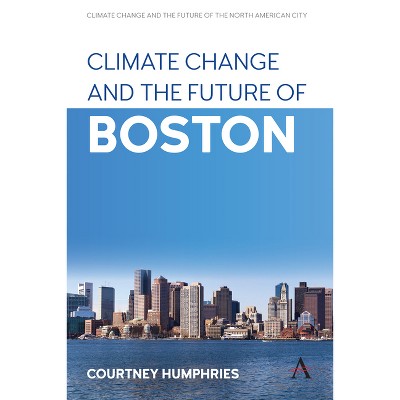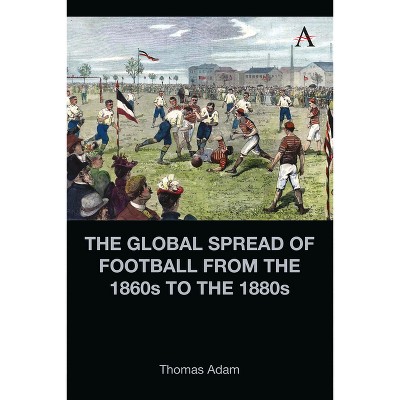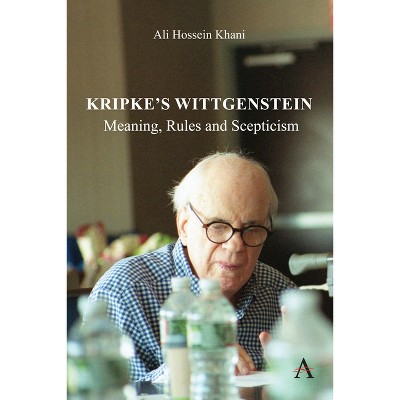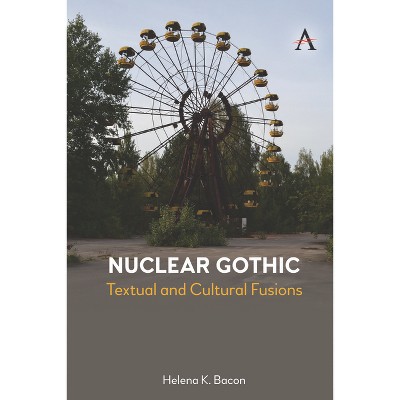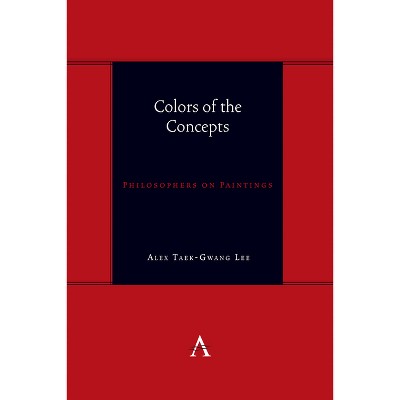Contestatory and Creative Poetics for a Time of Climate Catastrophe - by John Kinsella & Russell West-Pavlov (Hardcover)

About this item
Highlights
- Contestatory and Creative Poetics for a Time of Climate Catastrophe: Volume 1: Per Se is an extended narrative meditation upon the meaning of per se, which generally denotes the thing-in-itself, for its own sake - but that, upon closer examination, transpires to be a high tensile composite of the 'thing' (se) and a relationship (per) that always links it to something else - and indeed, in relations of internal complexity, to itself.
- About the Author: John Kinsella is the author of over seventy books of poetry, fiction, criticism, plays, edited works and collaborative works.
- 334 Pages
- Political Science, Globalization
Description
About the Book
This volume is a collaborative work of ficto-critical ecopolitics written by two Australian scholar-poets based in the Western Australian Wheatlands (John Kinsella) and Germany's south-western Württemberg (Russell West-Pavlov).Book Synopsis
Contestatory and Creative Poetics for a Time of Climate Catastrophe: Volume 1: Per Se is an extended narrative meditation upon the meaning of per se, which generally denotes the thing-in-itself, for its own sake - but that, upon closer examination, transpires to be a high tensile composite of the 'thing' (se) and a relationship (per) that always links it to something else - and indeed, in relations of internal complexity, to itself. Per se, in the book's multiple parsings of the term, is a moniker for the infinite relationality of the world and the relationality of each thing in itself. Per se also denotes the endless fractal embedding of bundles of relationality at the successive levels of thing-ness from the infinitesimally minute nano-scale to the unimaginably distant outer reaches of the sideral. Per se becomes an exploration of the way commodities, cut loose from their context of production and floating on sea of oscillating (exchange) values, never cease to morph back into artefacts defined by the socially intensive use-values their fellow actants discover in them. The book thus focalises a politicised effort to revision the rampant multiscalar individualism, solipsism and apartheid-like segregation of our age. Instead, it searches for possibilities or community in every aspect of the world we have learnt to see through a relentlessly atomising and hypostatising filter. The volume claims that every act of perception is political, reestablishing obfuscated connections, thereby seeking to repair the shredded fabric of the ecosphere below the threshold of myopic common-sense. Yet it also celebrates the myriad acts of citizen defiance, visible and invisible, that constitute activist agendas around the world, sending signals - both practical and exemplary, symbolic and literary - that shore up communities of resistance everywhere. The book does not hesitate to interrogate the fractal responsiveness to its own nature, meditating repeatedly on the political character of writing, and more significantly, of the teaching of writing. Central to its concerns are various avatars of trees, from the pirogue that hangs above a bar in Lille, and one that is crafted as part of an Italian artist's global collaboration on the periphery of this volume's emergence, via the jacarandas of post-apartheid South Africa, to a wood-chipped pine forest that has become a memorial library in Oslo - to name only a few of the topics taken up by the book's many silvan micro-fictions. Looming over all these concerns are two contemporary silvan catastrophes: the megablazes that destroyed forests in Amazonia, Australia, California, Siberia and the Mediterranean during the period when the book was being written and the deforestation that has allowed zoogenic diseases to jump from once secluded animal species to the humans that would never have been their neighbours if naturally occurring forest-barriers had been left intact.Review Quotes
"Similar to Deleuze and Guattari's A Thousand Plateaus or Berlant and Stewart's The Hundreds, this book multiplies the ways to reanimate the vibrant web of life on Earth threatened, as it is, by malevolent destruction. Here are texts that philtre antidotes - powerful mixtures of philosophy and poetry restoring connections you had never imagined." --Stephen Muecke, University of Notre Dame, Australia.
"As humanity engages with end-time scenarios, a book that combines incandescent words and theoretical sophistica-tion to both provoke and assuage. Engaging with the quiddity of nature and arguing for the porosity of the human and animal, the authors pose both a new paradigm and a challenge to the disciplines in the age of the Anthropocene." --Dilip M. Menon, Professor of History and International Relations, University of Witwatersrand, South Africa, and editor Changing Theory: Concepts for the Global South (Routledge, 2022).
"In this unique antipodal collaboration, Kinsella and West-Pavlov engage in an exhilarating dialogue of forms--fictocriticism, poetry, microfictions--responding to the urgencies of climate crisis with brilliance and imagina-tive force." --Philip Mead, The University of Melbourne, Australia.
"Per Se is an extraordinary collaborative work that reflects in fascinating ways on its own making. In the variety and verve of its forms, registers and concerns, it embodies exactly the multiplicity and connectedness the writers celebrate in the world. Essential reading for our troubled times." --Ivan Vladislavic, Distinguished Professor in Creative Writing, University of the Witwatersrand, South Africa.
About the Author
John Kinsella is the author of over seventy books of poetry, fiction, criticism, plays, edited works and collaborative works. He is an extraordinary fellow of Churchill College, Cambridge University, and emeritus professor of Literature and Environment at Curtin University. He has recently been a DAAD visiting professor at the University of Tübingen (2021-2024). Russell West-Pavlov is a professor of Anglophone Literature and co-convenor of the Interdisciplinary Centre for Global South Studies at the University of Tübingen, Germany. His recent book publications include Eastern African Literatures (2018), German as Contact Zone (2019), AfrikAffekt (2020) and, as editor, The Global South and Literature (2018).Shipping details
Return details
Trending Book Pre-Orders



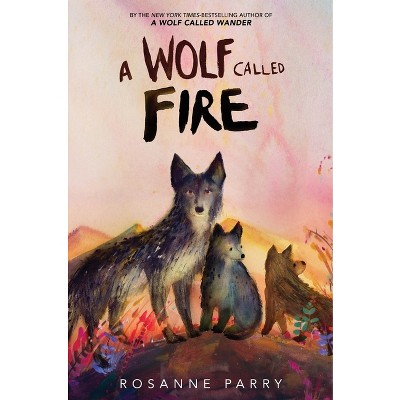

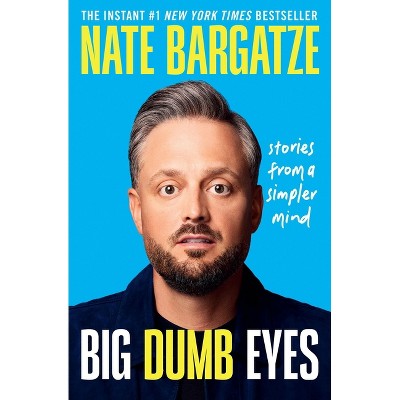
Discover more options

